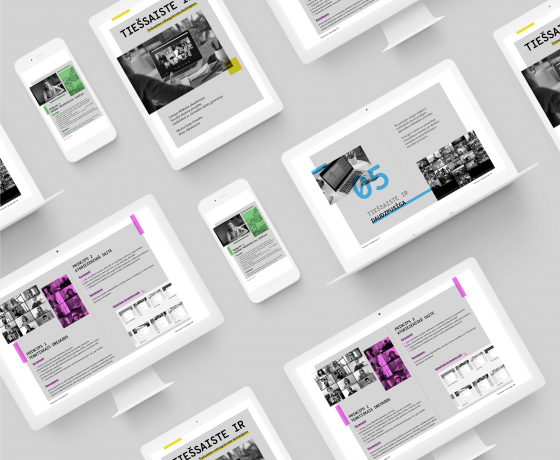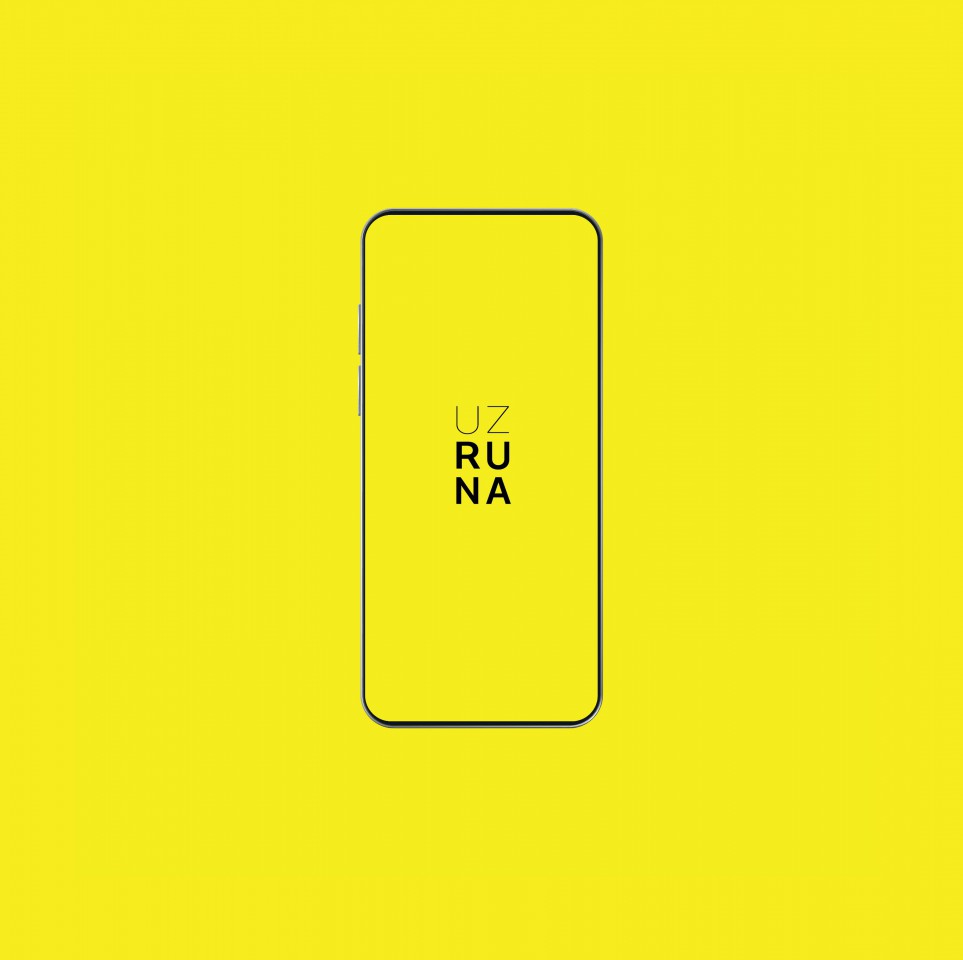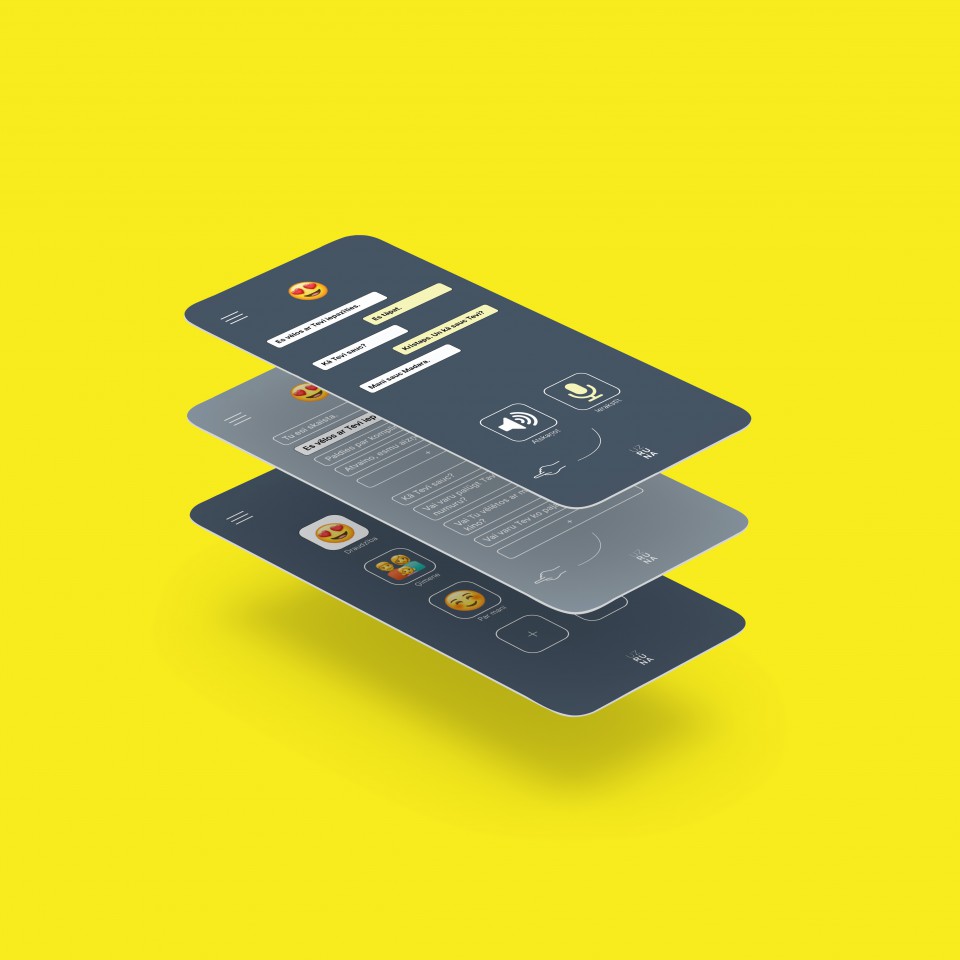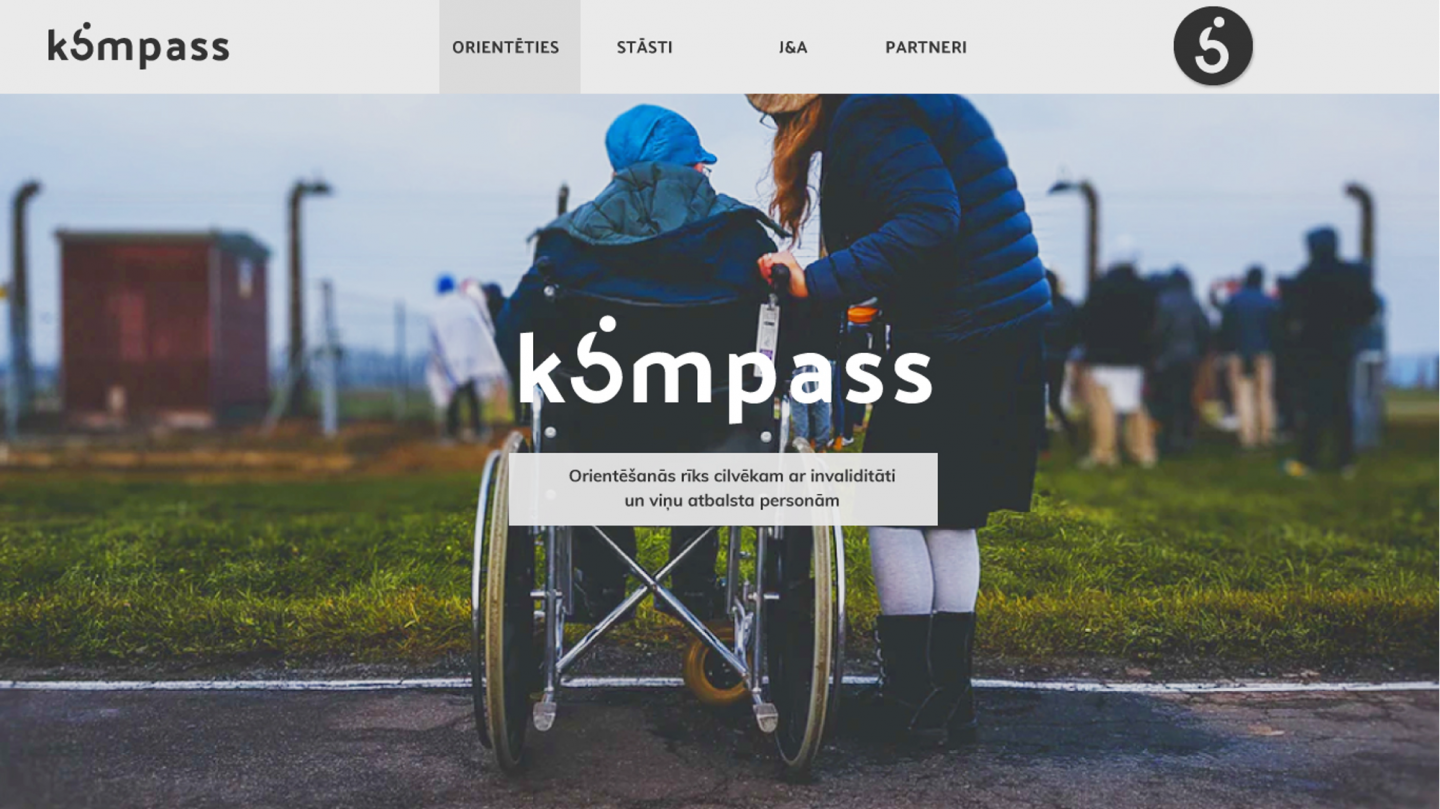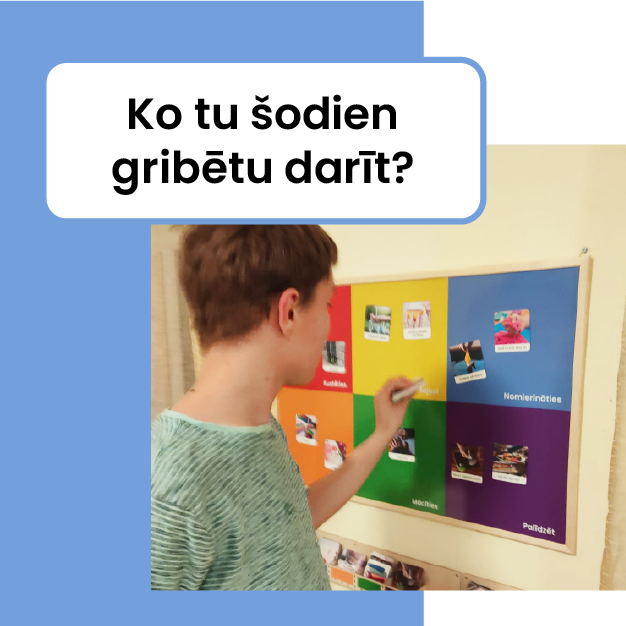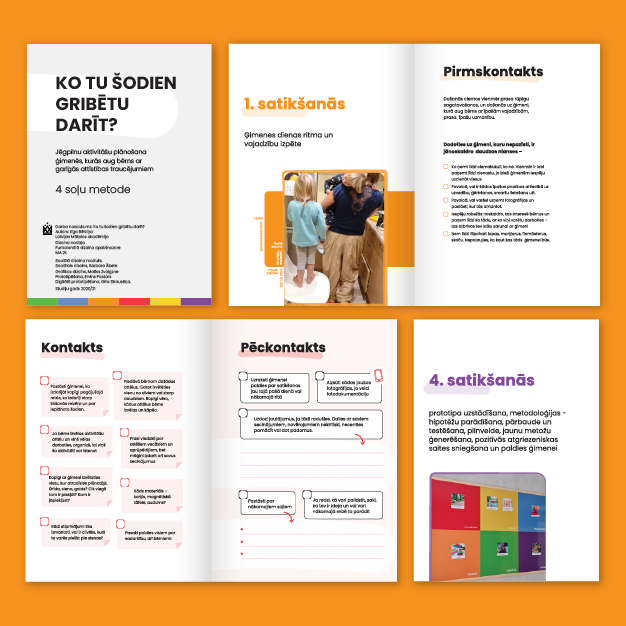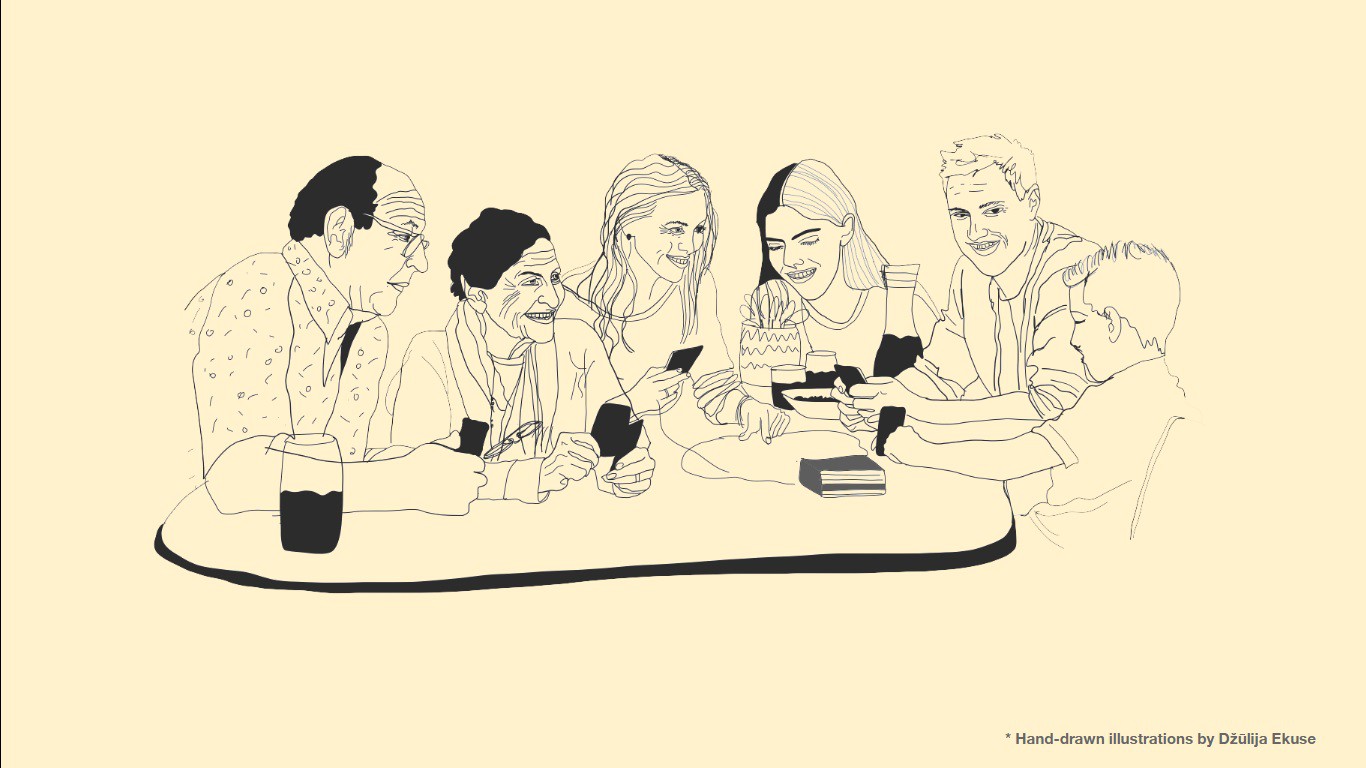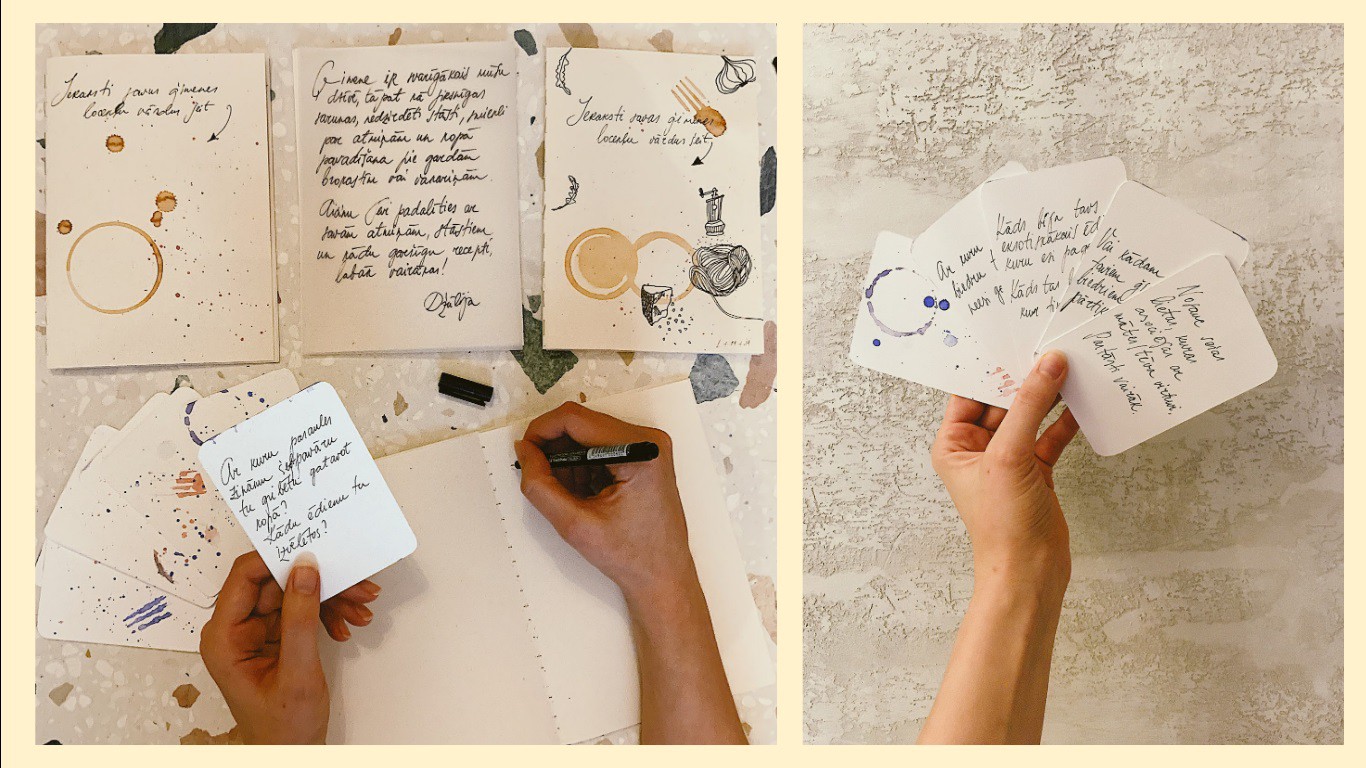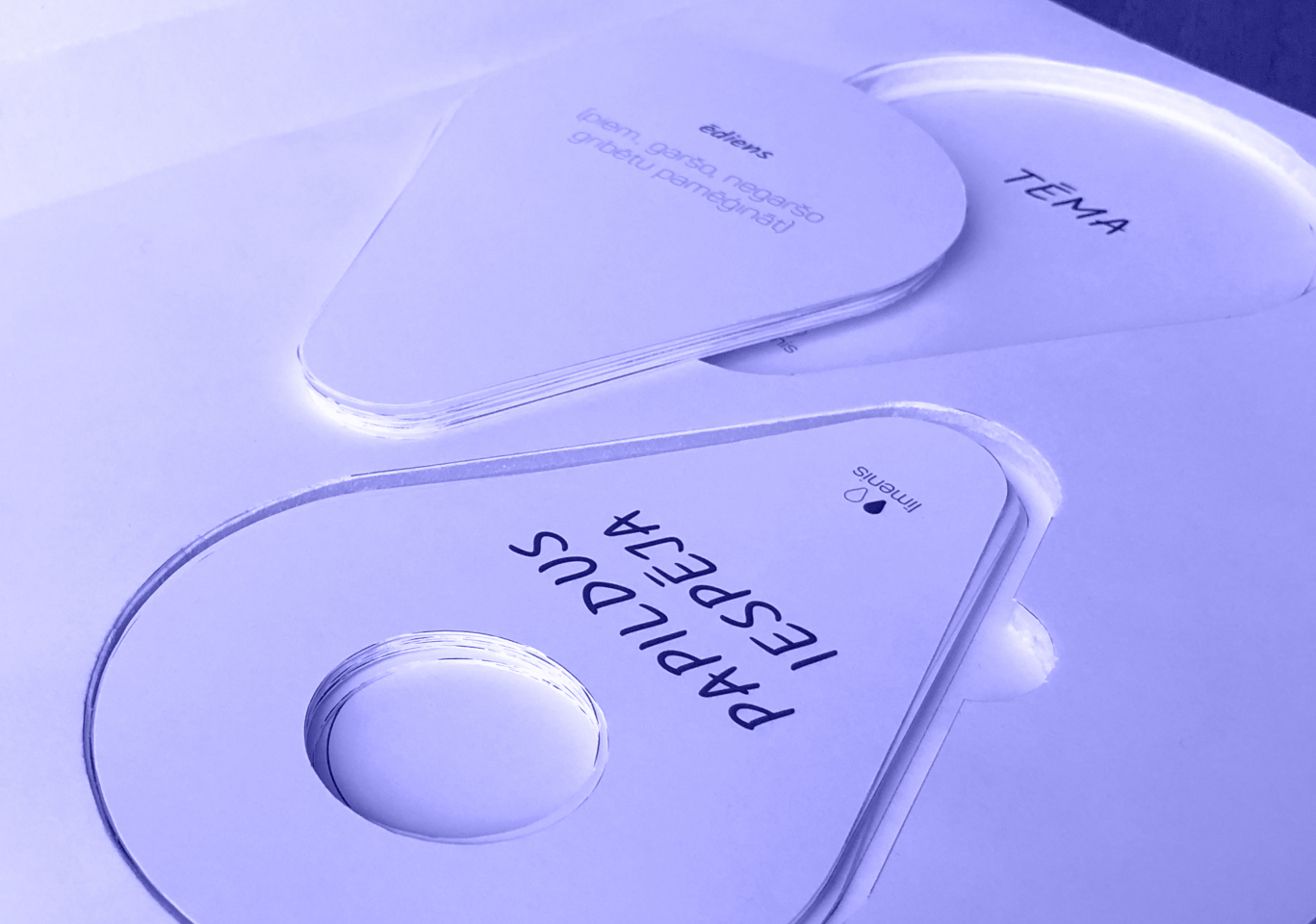AAL STUDENTS HAVE DEVELOPED SOCIAL DESIGN IDEAS WITH A BUSINESS ORIENTATION
During the 1st semester of the 2020/2021 study year, the second-year students of the Master's program of the Functional Design department of the Art Academy of Latvia (AAL) solved important problems for the society and certain groups or individuals in the Social Design study module. The aim of this study course was to promote the involvement and participation of master's students in the design of social innovations by engaging in cooperation with state and municipal institutions, the public sector, NGOs or individual communities. This year, successful cooperation has taken place with such institutions as Jurmala State Gymnasium, Latvian Autism Association, Adolescent Resource Center “Wings for Wheels”, “Apeirons” and the Latvian Association of the Deaf.
The development of ideas and the search for the proposed solutions during the design process took place directly together with the target audience itself. Students worked with very different groups of people, whose daily lives are associated with different activities and needs, so the design process identified truly important things for each specific target group. The process included a variety of design methods and tools that students developed specifically for each specific co-creation situation.
"In order to work with social design solutions, a design student must be endowed with empathy, observation and excellent communication skills, and this vividly describes the individual and group achievements of this course," says Barbara Ābele, Professor of the Social Design Module.
The professor continues: "Design ideas such as Līga Bērziņa's “Plānotājs jēgpilnām aktivitātēm” // " Planner for Meaningful Activities" has already turned into a social business enterprise, but a handbook for teachers by students Monta Kate Zviedre and Alise Jēkabsone “Tiešsaiste ir” // "Online is” has become a digital support tool for Latvian teachers in distance learning conditions. During an emergency situation when teaching takes place remotely, the handbook for teachers has successfully experienced its applicability and reached its user in the form of a ready-made product, exceeding the scope of the study task.”
“At the end of the year, social design ideas were validated in an online workshop using the social business evaluation tool “Grow a Business”, developed by VIA University College, Danish colleagues, and has been tested by the universities involved in the project BaltSe@nioR2.0 from Latvia, Poland and Finland. The evaluation process was led by the innovative business coach Vita Brakovska from the Latvian Social Entrepreneurship Association. Social and business experts from Latvia, Denmark, Poland, Estonia and Austria gave their positive feedback on the ideas developed by students, acknowledging that the ideas are universal and applicable to a wider target audience, increasing the well-being of more people,” says Vineta Kreigere, AAL project manager.
The ideas of social design were implemented under the guidance of Professor Barbara Ābele in cooperation with lecturer Matīss Zvaigzne and associate professor Ervins Pastors. The social business validation process was coordinated by project manager Vineta Kreigere.
We invite everyone who is interested in AAL Social module solutions and ideas for more information or cooperation to contact AAL project manager Vineta Kreigere. E-mail: vineta.kreigere(abols)lma.lv; Tel. +371 27809799.
Annotations of the created work ideas
Project: ONLINE IS // TIEŠSAISTE IR
Authors: Monta Kate Zviedre and Alise Jēkabsone
AAL Faculty of Design, 2020
Functional design department, MA 2nd year
Social design, Graphic design,
Supervisors: Barbara Ābele, Matīss Zvaigzne
The online environment has become an increasingly important issue for everyone during the global pandemic (Covid-19) this year. Within the framework of our social design project, we cooperated with the Jurmala State gymnasium to jointly design and develop an online handbook for teachers for use in planning and creating online lessons. During the research phase of our project, we found that both students and teachers have difficulty adapting to the online learning environment. Teachers lack knowledge on how to make online lessons attractive to students. On the other hand, it is difficult for students to keep their attention and they want a more interactive, intriguing and engaging approach to online lessons. The aim of the guide is to help teachers create an inviting, attractive and effective online environment. The principles in the handbook have been tested in real online lessons with both teachers and students.
Project: Turn a white page // Šķir baltu lapu
Author: Ēvija Kraukle
Co-designed with the Adolescent Resource Center
AALFaculty of Design, 2020
Functional design department, MA 2nd year
Social design, Graphic design, Prototyping
Supervisors: Barbara Ābele, Matīss Zvaigzne, Ervins Pastors
The project was created within the framework of the Social Design module by LMA Functional Department Master's student Ēvijai in cooperation with employees of the Adolescent Resource Center and a young woman, Justine. In the process of co-design, a game has been created to facilitate communication, reduce tensions and create new memories between close people. The game helps to start and form a meaningful conversation.
Project: Compass - an orientation tool for people with disabilities // Kompass – orientēšanās rīks cilvēkam ar invaliditāti
Authors: Gatis Vectirāns, Roman Galaiko
Co-designed with “Wings for Wheels”, Apeiron
AAL Faculty of Design, 2020
Functional design department, MA 2nd year
Social design, Graphic design
Supervisors: Barbara Ābele, Matīss Zvaigzne
The “Kompass” digital orientation platform is a solution for people with disabilities and their support persons, which gathers the most important information on the most relevant topics of disability. By entering the signs of disability and geographical location, “Kompass” is able to select information according to the needs of the individual.
Project: SPEECH // UZRUNA
Authors: Madara Salma, Linda Rubene
Co-designed with the Latvian Association of the Deaf
AAL Faculty of Design, 2020
Functional design department, MA 2nd year
Social design, Graphic design
Supervisors: Barbara Ābele, Matīss Zvaigzne
Within the social design module, Madara and Linda, Master's students of Functional Design at the Art Academy of Latvia, together with the Latvian Association of the Deaf and young people and seniors with hearing impairments (more than 60 participants in total), have developed a digital mobile application for more convenient first-time communication between deaf and hearing people.
Due to the communication barrier, both the deaf and hearing communities are separated and mutually stigmatized. SPEECH // UZRUNA is a bridge to the first steps in communication between the two parties. The app allows the deaf person to choose phrases appropriate for the situation (or write them themselves) and play the audio. In contrast, auditory speech by the hearing person is recorded and transformed into a grammatically correct readable form. This allows each other to better understand and at the same time deaf people to practice the correct Latvian language (the mother tongue the deaf people is sign language), thus helping in the perception and access of a wider information space. SPEECH // UZRUNA design offer is based on familiar everyday challenges and experiences of deaf people (digital devices, frequent use of emoji icons, technologies and social applications), thinking about the most convenient experience of using the tool.
SPEECH // UZRUNA development scenario envisages future cooperation with Tilde, supplementing the tool with voice intonation recognition and assignment function.
Project: TRIGEN FAMILY HANDBOOK /A guide to three-generation family conversations // TRIGEN ĢIMENES ROKASGRĀMATA / Ģimenes trīs paaudžu sarunu veicinoša pamācība
Author: Džūlija Ekuse
Co-designed with the Adolescent Resource Center
AAL Faculty of Design, 2020
Functional design department, MA 2nd year
Social design
Supervisors: Barbara Ābele
How can we provoke heartfelt, meaningful, and inclusive conversations between two or more generations to build closer relationships and create new memories?
Working together in design processes and in talks with the teenager Ieva Nevedomska and the Adolescent Resource Center, a two-step food-inspired thematic handbook for conversations was co-designed, developing issues that stimulate healthy and heartfelt conversation within a family of two or more generations. The TriGen Handbook consists of two parts, the first is a card-type principle with questions, tasks and facts about and around food and the second part is a family recipe notebook that will create and preserve new experiences, stories and recipes, that turn into a memory pad that will be preserved for future generations.
Project: Planner for meaningful activities / What would you like to do today? // Plānotājs jēgpilnām aktivitātēm / Ko tu šodien gribētu darīt?
Author: Līga Bērziņa
Co-designed with the Latvian Autism Association
AAL Faculty of Design, 2020
Functional design department, MA 2nd year
Social design, Graphic design, Prototyping
Supervisors: Barbara Ābele, Matīss Zvaigzne, Ervins Pastors, Gita Straustina
Because support staff often do not know how to provide meaningful daily activities for people with significant special needs, this can lead to serious mental health and even behavioral problems - aggression towards others as well as auto-aggression.
A planner for meaningful activities can help create a safe and developing environment for families with children with significant autism, UDHD, people in palliative care, seniors with dementia, and others.
Parents whose families have children with special needs have already improved this study work and a social enterprise has been established, which will offer such individualized activity planners for persons with significant special needs.
About project no. R081 BaltSe@nioR2.0
The Art Academy of Latvia (AAL) participates in the European Union Interreg Baltic Sea Region (BSR) transnational cooperation program project No. R081 BaltSe@nioR2.0 (Innovative solutions for providing a senior-friendly public environment on the basis of capacity building of BSR companies and public institutions). AAL has the status of a project partner. The project continues to address project no. R030 The challenges of implementing BaltSe@nioR in the context of an aging population, this time with a stronger focus on adapting public spaces to the needs of seniors.
